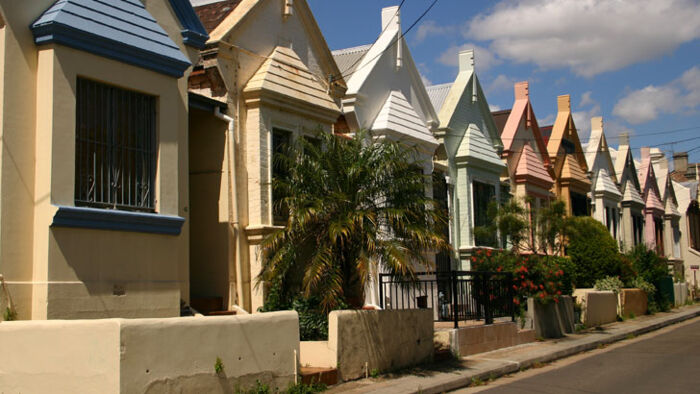Melbourne and Sydney property prices tipped to fall in 2024
By Tom Watson
The Australian property market could be in for a mixed year in 2024, with new research anticipating moderate price falls in some of the country's largest cities.
Average national dwelling prices are predicted to shift in the -1% to 3% range next year according to the base forecast outlined in SQM Research's 2024 Housing Boom and Bust Report.
Louis Christopher, managing director of SQM Research, says that Brisbane and Perth are likely to be the only capital cities that will record meaningful rates of price growth though, with property prices in other cities likely to stay relatively flat or trend downwards.
"Another year of anticipated strong population expansion (albeit slower than 2023) plus an ongoing shortage of new dwellings, will limit the fall in housing prices to single percentage digits and the price falls should just be limited to mainly Sydney, Melbourne, Canberra and Hobart.
"Nevertheless, with expected slowing employment growth and the corresponding rise in unemployment, tipped to be towards 5% by the end of 2024, this negative will more than offset another year of strong migration."
Christopher also anticipates that the cumulative impact of the 13 recent cash rate increases will have a knock-on effect on property prices.
"The interests rate rises of 2022, 2023 and possibly 2024 will finally start to bite homeowners and would-be homebuyers alike.
"Distressed selling activity is expected to jump, especially in New South Wales where we are already starting to see a new trend upwards in that data set."
Where could house prices drop in 2024?
As property experts are keen to emphasise, the diversity of housing markets across Australia means that it's worth looking regionally rather than nationally.
So zooming in, how are dwelling prices in each capital city expected to fare?
Canberra could be in line to record the largest drop of any city, with SQM Research anticipating that a fall in federal government spending and a strong uptick in supply will contribute towards a price decline of between 4% and 8% in the nation's capital over the year.
Property prices in Hobart are expected to retreat at a similar rate of between 3% and 7%, while those in Sydney, Melbourne and Darwin are also anticipated to decline, but less severely.
On the other hand, the analysis points towards a year of relatively flat or slightly higher growth in Adelaide and stronger price growth in Brisbane and Perth.
"Perth and Brisbane are still very likely to record price rises based on super tight rental conditions, a better-than-expected global commodities market and minimal exposure to the financial services sector (where we believe there may be significant job losses)," says Christopher.
Banks bullish on growth
The consensus is by no means set on the outlook for housing prices though - at least, nationally. Australia's four major banks, for instance, have been more confident on the possibility of price growth next year than SQM Research.
In recent months ANZ (3% growth), the Commonwealth Bank (5% growth), NAB (5% growth) and Westpac (4% growth) have all pencilled in property price growth at a national level for 2024 - though these forecasts all came before the November cash rate hike.
In an update released just before the RBA's November meeting Gareth Aird, head of Australian economics at the Commonwealth Bank, stated that while a November hike could impact property sentiment in the near term, supply issues were likely to continue to prop up demand.
"Overall we expect the underlying demand for housing to remain firm against a backdrop of constrained supply and strong rental growth."
Get stories like this in our newsletters.



